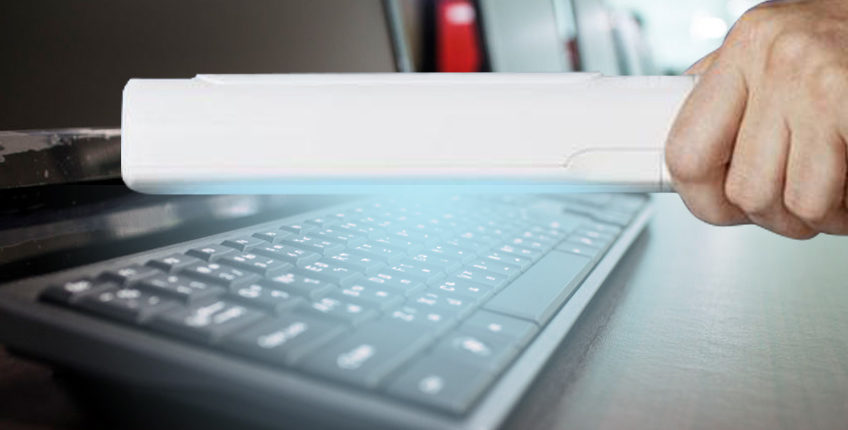For months, the COVID-19 situation has changed rapidly, causing priorities to shift for many of us. Protecting frontline healthcare workers, the immune-compromised, the elderly, first responders, and grocery and logistics workers have become more important than ever before.
As we continue to self quarantine in an effort to flatten the curve and stop the spread of this virus, many of us are going above and beyond- some extreme- to keep from contracting the virus through frequent sanitization practices. However, this has caused a severe shortage of hand sanitizers, rubbing alcohol, and other disinfectant items. With tangible, liquid sanitizing products in short supply, many are turning to an alternative measure: ultraviolet (UV) light. For decades, UV irradiation has long been used to sterilize everything from medical instruments, regular household items like toothbrushes and baby formula bottles, to surfaces, so it makes sense to wonder: Can UV light kill the coronavirus?
How can UV light kill pathogens
By now, most of us know that viruses cannot reproduce on their own. What they do have is genetic material, either DNA or RNA. They reproduce by attacking our healthy cells and quickly multiply through the spread of their DNA. Some viruses burst out of the infected cell (this form of reproduction is called the lytic cycle), while others merge into the infected cell, reproducing every time that cell divides (lysogenic). To that end, UV light can severely damage a virus’ DNA since DNA molecules are made of two strands bound together by four bases, adenine (A), cytosine (C), guanine (G), and thymine (T). UV light can cause thymine bases to fuse together, scrambling the DNA sequence, and essentially putting a halt to the reproductive process of the virus. Since the DNA sequence has been compromised by the effects of UV light, it can no longer replicate. This is how UV light destroys pathogens.
But will it work on the coronavirus?
COVID-19 is a new type of coronavirus and as such, virologists around the world are still scrambling to fully understand its structure in order to develop a vaccine. However, in recent years, the application of germicidal UV on surfaces and non-organic, inanimate objects, has helped stop the spread of numerous pathogens like the flu and SARS (another type of coronavirus).
If you’re wondering what germicidal UV is, it is part of the ultraviolet spectrum known for its ability to inactivate pathogens like bacteria and viruses, especially in rooms and surfaces. And with reports indicating that COVID-19 can live on certain surfaces for up to three days, it has become critical to disinfect with higher than average frequency. The Illuminating Engineering Society (IES) recently released a report on germicidal UV and has noted that it is the most effective at disinfection. But despite the science supporting its effectiveness, germicidal UV has not been widely used in the U.S. until the early 2000s when the CDC and FEMA actively began endorsing their use in hospitals to disinfect surfaces and certain medical equipment.
With that said, there is no conclusive evidence that the application of this type of UV light can inactivate COVID-19. It is, however, a solution to consider as part of your sanitization practice for your facility to give your employees and customers added peace of mind. If you want to learn more about the types of germicidal UV lighting applications that would best fit your facility’s needs, reach out to us and we will provide you with more detailed information with clarity and transparency.
Did you know that Sierra Group is a service-focused multi-disciplined company specializing in Commercial Construction, Electronic Security, and Facility Services? At Sierra Group, you partner with one company of elite professionals able to build, secure, and maintain your facility. Call us today at 1-888-880-4949 for cost-effective solutions that back your continued success.
Electronic Security | Commercial Construction | Facility Services







